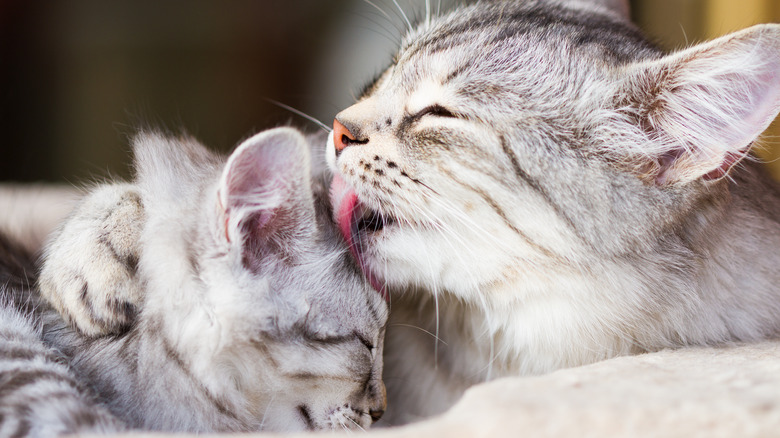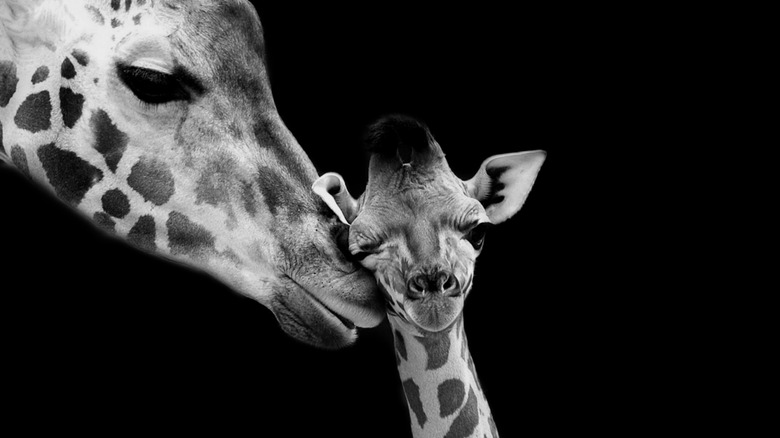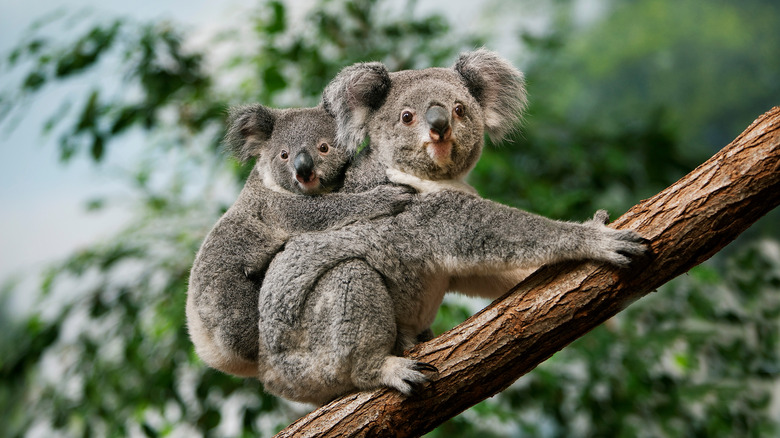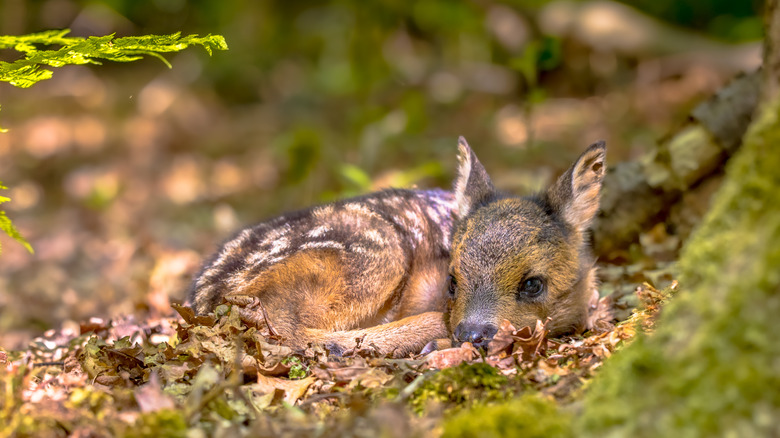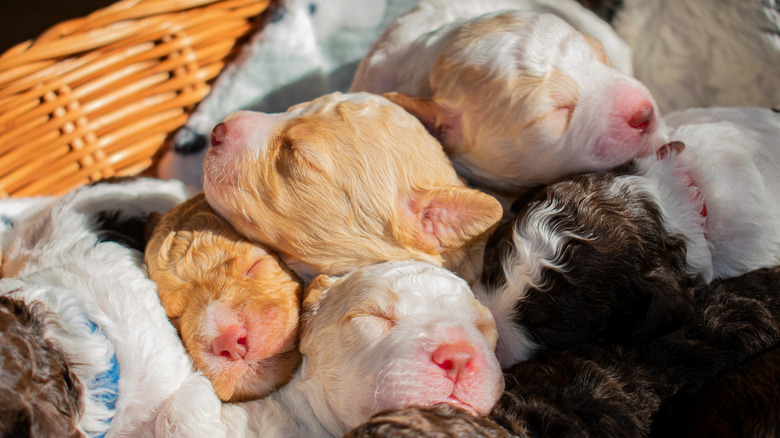The Science Behind Why Animals Lick Their Newborns
If you've ever observed an animal after giving birth, you may have noticed the mother licking her young. But why do animals do this? It turns out that most mammal mothers lick their newborns on an instinct rather than for a specific reason. This instinct can be pretty useful for multiple reasons, including the development of her babies and keeping them clean.
A study published in Psychology Today found that the offspring of rats that were licked more often by their mothers were more likely to be exploratory and resilient. In addition, these same rats had less of a fear response and lower stress hormones. What's more, rats that were licked more as a baby were more likely to frequently lick their newborns as well, continuing a cycle of improved survival odds. In fact, licking brings many benefits for both the mom and her babies, including cleanliness, bonding, and more.
Licking is essential for cleaning up after birth
One important reason mammals lick their newborns immediately after being born is to clean up the afterbirth. The placenta, fluids, and blood have a scent that can attract predators. This is especially true for dogs and wolves, although other mammals do this as well. When a mom cleans off her babies and eats the placenta, she helps to hide evidence of the birth so that predators don't prey on her babies (via Wag). Eating the placenta can also provide much-needed nourishment for the mom, who uses a lot of energy during birth (via HowStuffWorks).
Another important part of cleaning up the birth is to help stimulate blood flow in the babies. This helps to ensure their organs are functioning and they don't have any afterbirth blocking their nose or mouth that would make it difficult to breathe or cause them to choke (via Blue Cross). Licking keeps the babies clean and helps to remove any bacteria, dirt, or germs that got on them right after they were born.
Licking is an important part of bonding between mom and baby
Licking is beneficial to both mammal moms and their babies because it helps them bond. When a mom licks her baby, it draws the attention of the newborn and gets them to nurse. This helps the baby grow and ensures the mom continues to produce enough milk. Dogs use licking as a form of comfort for their puppies, helping them feel safe and protected (via Blue Cross). This is especially important as newborn puppies are born with their eyes and ears shut and are unable to see or hear for the first few weeks of life. By feeling their mom's licks, they know she is present.
In cows, licking provides a unique opportunity for the mother to feel more connected to her baby. The process of licking her calf activates her maternal instinct through the release of hormones. This is an evolutionary trait that prevents the mother cow from rejecting her calf, raising its odds of survival (via Canadian Cattlemen). In this way, licking allows mom to feel connected to her calf, benefiting both of them.
Grooming helps to hide scents from predators
Licking and cleaning newborn animals also helps to protect the mom and babies from attracting predators. The scent of the birth can be strong and enticing to other animals, which are alerted to the presence of helpless babies nearby. When mom eats the afterbirth and cleans her babies, it works quickly to mask any odors (via Wag).
This process is especially unique in deer. When fawns are born, they do not yet have highly developed scent glands and have a smell of their own that can attract predators. When a fawn is born, the mother will groom it, removing nearly all the scent of their young. In this case, proper cleaning and removal of the scent are important because fawns spend the majority of their first few weeks of life bedded down alone in a hiding spot. If the fawn were to have a strong scent that attracted predators, then no hiding spot would be enough to conceal it (via Northern Woodlands).
Infant mammals often need help with basic bodily functions
In some mammals, such as dogs, the newborns are not able to urinate and defecate on their own yet. Instead, the mother must lick their bellies and genitals in order to stimulate the reflex to use the bathroom. This is an important part of ongoing care that a mother dog must provide to her young for the first several weeks of their lives until they are old enough to go out on their own.
The reason mothers lick their babies to get them to use the bathroom is because it works to help them in more ways than one. While it helps the newborns to relieve themselves, keeps their nesting area clean, further concealing any smells from predators and keeping the babies from walking around in their own feces (via Wag). The fact that puppies cannot urinate whenever they want may help keep the litter safe by allowing their mom to clean it up.
Humans don't lick their young thanks to evolution
Despite the fact that humans are mammals, we are one of the few species that don't lick our babies. This is most likely due to evolution, which has given us hands with opposable thumbs to help us clean our babies through other means. Humans bond with their babies with skin-to-skin contact rather than through licking anyways, so if humans were to lick their young, it would most likely be for cleaning purposes only.
Another factor for why humans don't lick their young may have to do with the fact that human infants' organs don't need stimulation after birth to properly function. Many other mammals require help stimulating blood flow, the digestive system, and breathing immediately after birth. Human babies don't require this and are generally born able to breathe and function on their own after birth (via HowStuffWorks).
